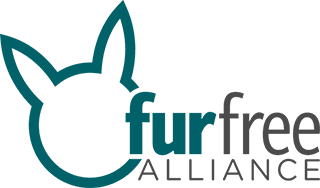
Fur Industry “WelFur” scheme criticized by veterinarians for masking animal suffering and condemned as “cynical PR spin” by animal campaigners
BRUSSELS, 21 JANUARY 2020 – A fur industry animal welfare certification scheme being showcased by the fur trade in the European Parliament this week has received in-depth criticism by renowned veterinarians, and been condemned as a cynical ‘smoke and mirrors’ attempt to hide animal suffering, in a damning report published today by the Fur Free Alliance.
In the face of widespread public concern about animal suffering on fur farms, “WelFur” has been launched Europe-wide by the fur industry. However, world-respected veterinarians say that the scheme — which is entirely fur industry-led and voluntary — does not ensure that farmed foxes and mink living in battery cages have their behavioural needs met, nor does it provide assurance that individual animals do not suffer from physical or mental health problems.
According to industry body Fur Europe, only WelFur-certified pelts will be sold in European fur auctions from 2020 onwards. Animal protection experts from the Fur Free Alliance who have visited fur farms across Europe say Welfur is cynical PR spin from a fur industry desperate to shake off its reputation for animal cruelty.
Poor welfare being masked
In the Fur Free Alliance’s report “Certified Cruel”, a detailed analysis by veterinarian and Professor Emeritus, Bo Algers, reveals that:
“The WelFur schemes combining of different welfare measures into overall scores obscure individual measures and therefore allow serious cases of individuals suffering from poor welfare to be masked.”
He continued:
“The WelFur protocol is not an assessment of animal welfare in relation to an “absolute” animal welfare level, nor is it assessing animal welfare on an individual animal level.”
WelFur also fails to take into account the species-specific needs of fur-bearing animals. For example, in the wild digging forms a core part of a fox’s activity, and mink are semi-aquatic so access to water for swimming is vital to maintain their physical and mental well-being. However, in the WelFur scoring system, these essential needs are completely ignored.
Veterinarian Professor Alistair MacMillan, who contributed to the report after reviewing footage taken on Finnish fur farms in 2019, said:
“So-called welfare certification schemes like WelFur do not measure or tell us anything meaningful about the welfare of the animals on fur farms in scientific, absolute terms. They simply measure how farms compare with each other in the context of a fundamentally inadequate caged-based farming environment. For as long as they are kept in small, barren wire-floored cages, animals such as foxes, mink and raccoon dogs will continue to suffer from a long list of problems including cannibalism, self-mutilation, and stereotypical behaviours. WelFur does nothing to change those housing conditions – or address the resulting inherent welfare issues – for these millions of animals.”
Alarming conflicts of interest
The Fur Free Alliance report also raises serious concerns about conflicts of interest in auditing practices. Despite industry statements that assessments are undertaken by an independent third party, the Finnish Fur Breeders ́ Association owns 38% of the stock of the company Luova which states it is in charge of auditing Finnish fur farms, and several of its assessors also have ties to the fur industry.
FFA Chair, Joh Vinding, said:
“While this scheme is being promoted to the public and politicians as independent, that is far from the case in Finland. In truth it’s a scheme without any credibility, not only because it relies on the outdated housing systems that have shown to cause serious welfare issues for animals, but also because it is so closely associated with the very fur industry it purports to monitor.”
Veikka Lahtinen, campaign coordinator for Finnish animal rights organisation Animalia (a Fur Free Alliance member), said:
“Finland is often presented as a model country for animal welfare and transparency. The fur industry with its Welfur PR scheme is really damaging what are thought to be some of our core values. The cruel and vanity-driven fur industry has no place in a civilised country.”
The Fur Free Alliance report strongly recommends that the EU and Member State policymakers refrain from endorsing WelFur, or in any way integrating it into animal welfare policies. It also recommends that the EU urgently conducts audits to investigate the ways in which fur farming fails to comply with current EU Directive 58/98/EC and 1999 Council of Europe recommendations. Numerous investigations have shown that practices documented on EU fur farms do not meet the most basic animal welfare needs, nor the 1998 EU legislation (Directive 58/98/EC) relating to animals kept for farming purposes.
Claire Bass, Executive Director of Humane Society International/UK (a Fur Free Alliance member), said:
“WelFur is little more than cynical PR spin from a fur industry desperate to shake off its reputation for animal cruelty. Animals farmed for their fur, such as foxes, mink and raccoon dogs are highly active, wide-ranging predators with behavioural and biological needs that simply cannot be met in a barren metre-squared battery cage. Their intensive confinement often leads to serious psychological and physical problems, which I have witnessed first hand when I’ve visited fur farms. No amount of smoke and mirrors from this WelFur scheme can hide the fact that fur farming causes indefensible animal suffering and needs to be banned.”





